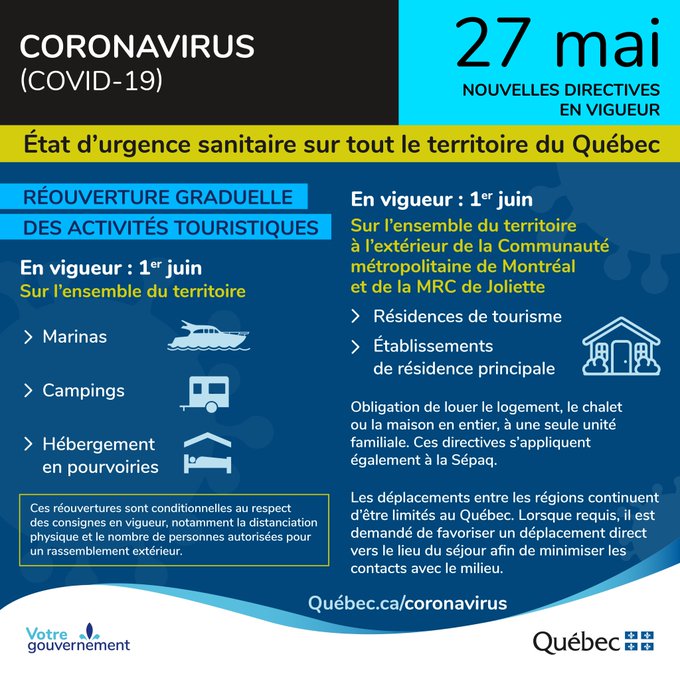Campsites and outfitting establishments to open on June 1st
Campsites and outfitting establishments to open on June 1st
It will be possible to stay at campsites, outfitting establishments and other tourist accommodation in Quebec as of June 1st. The marinas will also be accessible again from this same date.
Many measures will apply and must be respected, including the rule on outdoor gatherings of ten people. The Minister of Tourism, Caroline Proulx, recalled that it is always recommended to limit travel from one region to another and, if required, to encourage direct travel to the place of accommodation in order to limit contacts with the community.

Public health authorities have granted the necessary authorizations to reopen seasonal and traveler-type campsites in a safe and progressive manner, in addition to the rental of ready-to-camp units from all regions of Quebec. This also includes rental tourist residences (cottages) located outside the metropolitan community of Montreal and the MRC de Joliette. This also includes the accommodation offered on the sites of the Société des establishments de plein air du Québec (Sépaq).
Accommodation, cottages or houses must be rented in full, to one family unit at a time. The strategic medical advisor at the Department of Public Health, Dr. Richard Massé, clarified this question.
Remember that it is currently possible to gather outside, provided that gatherings are limited to a maximum of 10 people. A minimum distance of 2 meters must be maintained between people who do not come from the same household, and the wearing of a mask or face cover is strongly recommended.
The announcement made by the Minister of Tourism this Wednesday concerning the tourism industry is part of a first phase of recovery. Caroline Proulx said that several departments are working on a plan to help the tourism industry, which could be announced in the future.
In order to ensure a safe reopening for all, sectoral tourist associations are collaborating with the Quebec Tourism Human Resource Council to develop health guidelines, adapted to the different sectors, that operators will have to implement. In addition, guides have been produced by the Commission des normes, de l’équité, de la santé et de la sécurité du travail (CNESST) in collaboration with the National Institute of Public Health.

